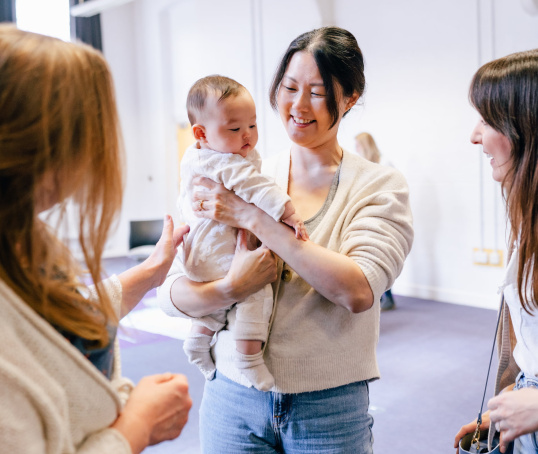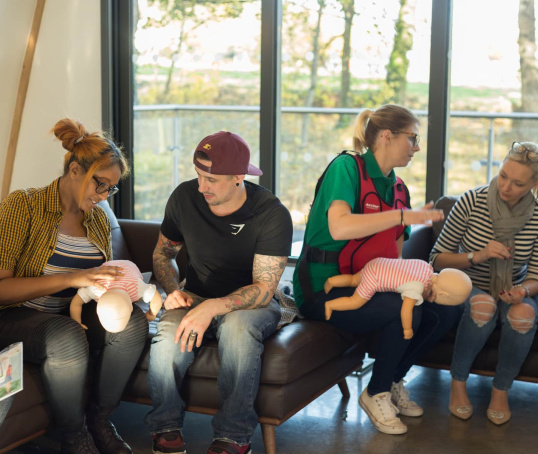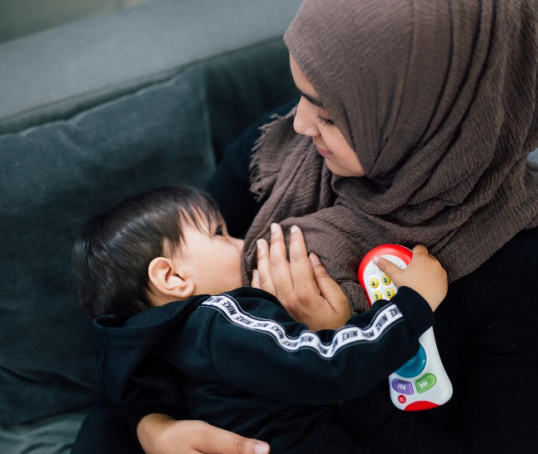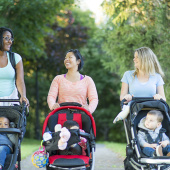Clo Abe, founder of Prosperitys a maternal wellbeing social enterprise supporting Black and Asian pregnant women, shares her self-care tips for mums with a newborn.
1. Eat well and keep hydrated
Try to eat at least one nourishing meal and don't forget your five-a-day fruit and vegetables!
2. Sleep when the baby is asleep
If you can't sleep when your baby is sleeping, try to sleep early in order to get enough sleep.
Establishing a bedtime routine at the same time every night is a great way to encourage your baby to fall asleep like clockwork.
A good night’s sleep is important for both of you and your baby.
3. Establish a morning routine
Wake up before your baby if you can and have some time to meditate, pray or do affirmations. Starting your day with affirmations can help empower you and put you in a positive mindset. You could try saying, “I am able, I am beautiful, I believe in me” and end it with “Today will be a great day”.
Your mornings will run more smoothly the more you practice your routine.
4. Look good, feel good
Looking good can help you to feel good. Brushing your hair or even putting mascara on goes a long way.
Getting ready for the day can also help to create self-confidence.
5. Exercise and fresh air
Exercise is good for your mental health. Going for walks is a great source of exercise.
And just opening your door to get some fresh air for a few minutes can make a difference too.
6. Cook easy meals
Cook easy meals, the last thing you want to be doing is spending every night cooking dinner - unless that's something you really enjoy. Plan weekly meals to help you prepare.
7. It’s okay not to be okay
Seek help and talk to someone. There is lots of support out there if you need it including Prosperitys (see more below).
8. Sharing is caring
Share responsibilities with your partner or other family member, looking after a child is a massive job. Asking for help doesn't make you weak, it makes you a strong person to accept help
9. Prioritise
Try and focus on getting three things done a day. At least once a day, try to do something you enjoy.
10. Make time for yourself
Take a long warm shower or bath whichever you prefer at least once a week. Just relax and enjoy your time and be present. It should be your reward for getting through the week!
More information
Prosperitys is a maternal wellbeing social enterprise designed to provide free support to Black and Asian pregnant women in Lambeth and Southwark. They focus on prevention, social isolation and raising maternal mental health awareness. Services are based on user feedback and recommendations from professionals. The Prosperitys model is designed with service users in mind and services are tailored to meet an individual’s needs.
Our support line offers practical and emotional support with feeding your baby and general enquiries for parents, members and volunteers: 0300 330 0700.
You might find attending one of our NCT New Baby courses helpful as they give you the opportunity to explore different approaches to important parenting issues with a qualified group leader and other new parents in your area.
Make friends with other parents-to-be and new parents in your local area for support and friendship by seeing what NCT activities are happening nearby.





